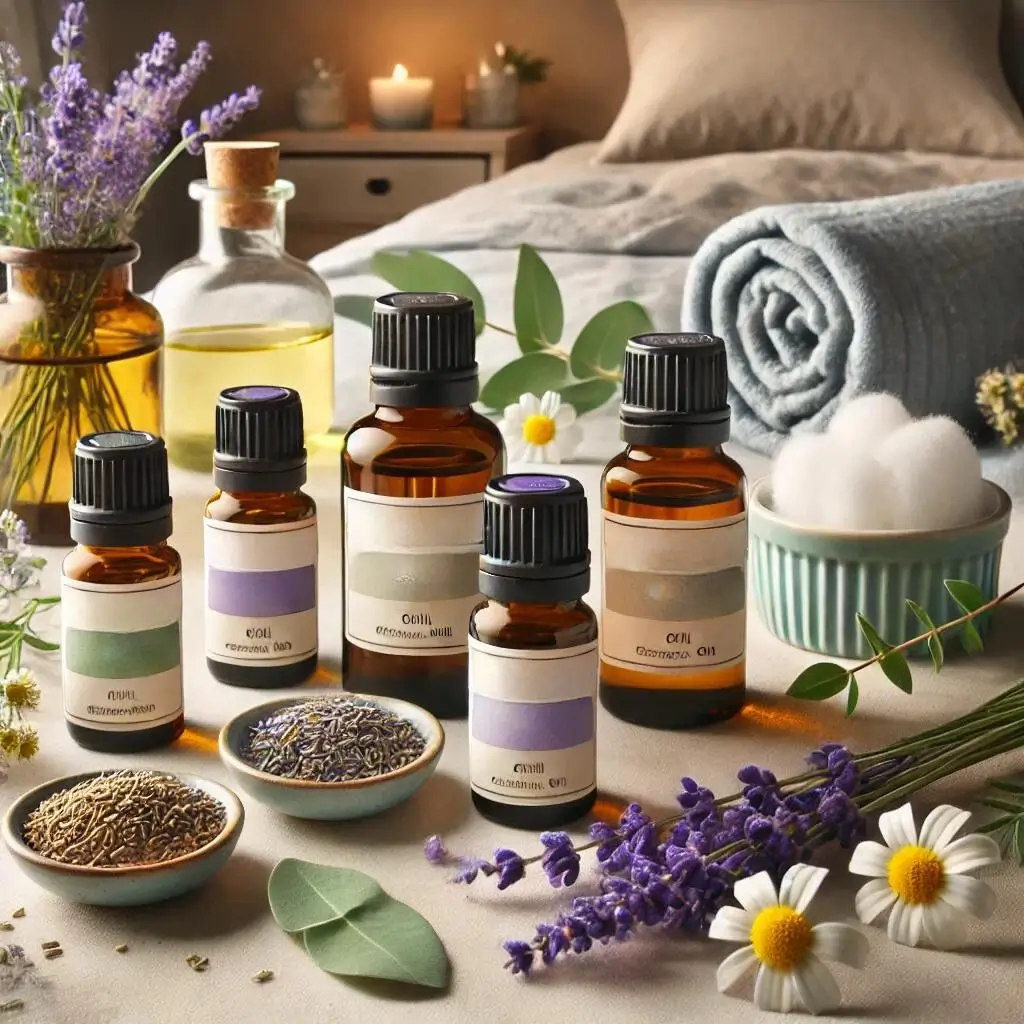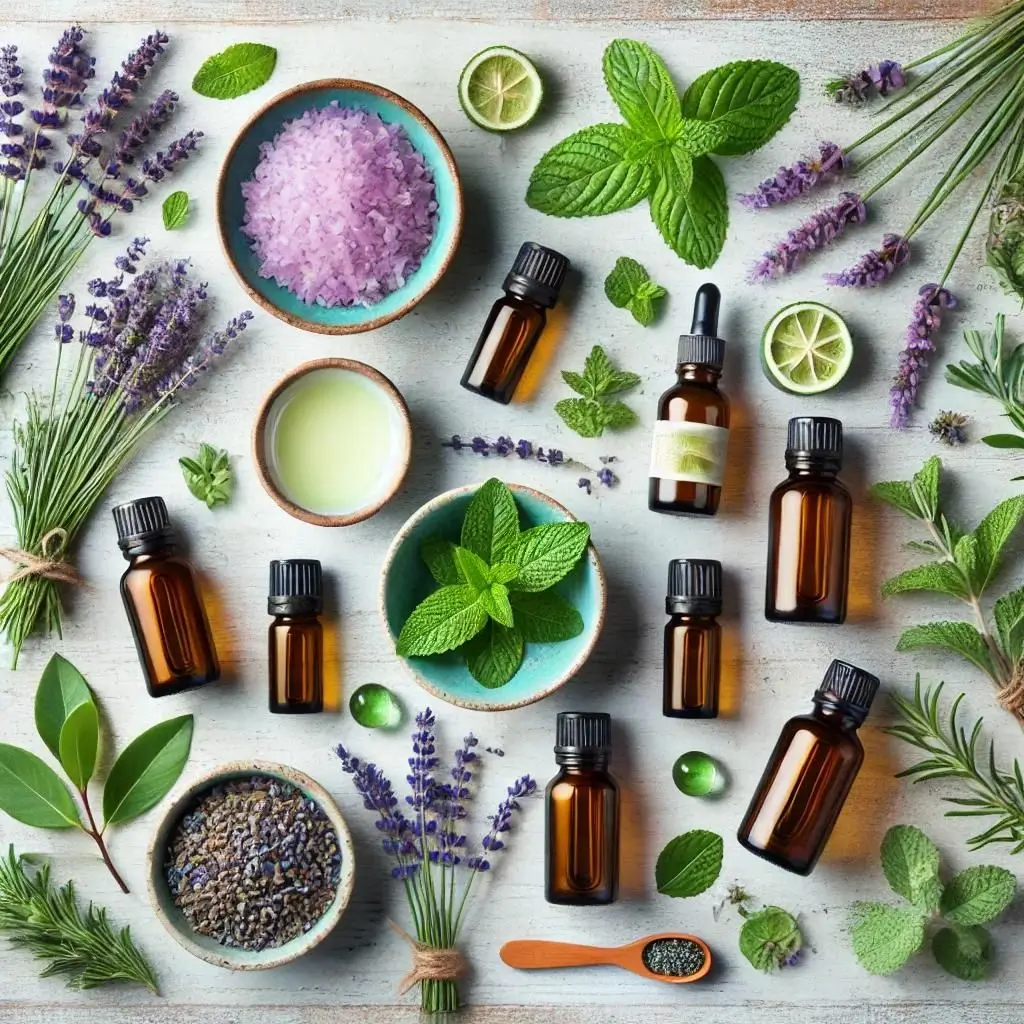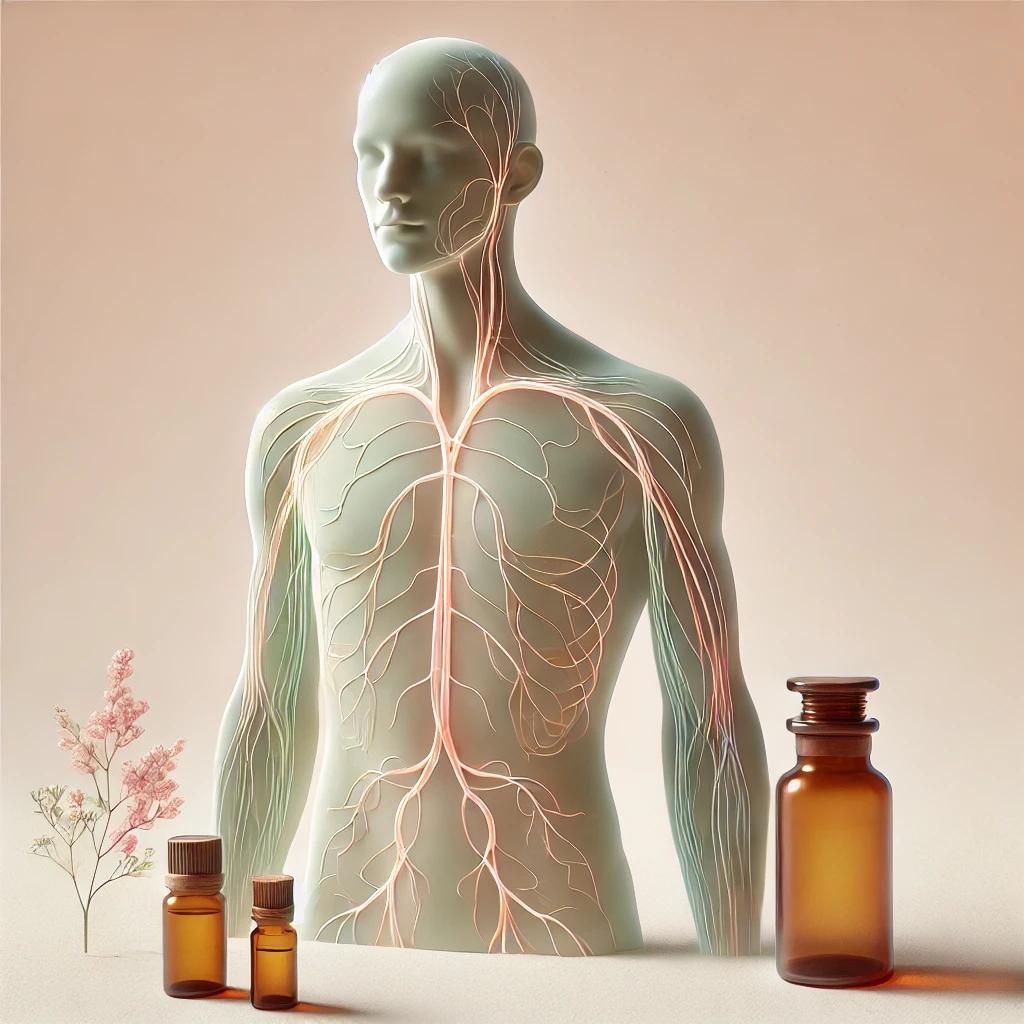Sleep apnea is a common yet serious sleep disorder where breathing repeatedly stops and starts. This condition can lead to poor sleep quality and various health issues. While medical treatments are essential, many people explore complementary therapies to help manage symptoms. One such complementary approach is the use of essential oils. Essential oils are concentrated plant extracts known for their therapeutic properties. This guide explores how essential oils can be beneficial for sleep apnea, offering insights into their usage, benefits, and precautions.
What are the best essential oils for sleep apnea?
When it comes to managing sleep apnea with essential oils, certain oils stand out due to their specific properties that aid in respiratory support and relaxation. Here are some of the best essential oils for sleep apnea:
- Lavender: Known for its calming properties, lavender oil can help promote relaxation and improve sleep quality.
- Peppermint: This oil helps to clear nasal passages, making breathing easier during sleep.
- Eucalyptus: Eucalyptus oil has anti-inflammatory properties that can help open airways and improve airflow.
- Marjoram: Often used for its soothing effects, marjoram oil can aid in reducing snoring and improving sleep quality.
- Chamomile: Chamomile oil is another calming oil that promotes relaxation and can help induce sleep.
- Thyme: Known for its antimicrobial properties, thyme oil can help with respiratory issues and improve breathing.
- Tea Tree: Tea tree oil can help reduce congestion and improve breathing by its decongestant properties.
- Valerian: Valerian oil is known for its sedative effects, which can help those with sleep apnea get a better night’s rest.
- Sandalwood: This oil has calming and sedative properties that can enhance sleep quality.
- Bergamot: Bergamot oil can help reduce stress and anxiety, which may contribute to better sleep.

How do essential oils help with sleep apnea?
Essential oils can assist with sleep apnea in various ways, primarily by improving sleep quality, reducing snoring, and enhancing respiratory function. Here are the main mechanisms:
- Relaxation: Oils like lavender, chamomile, and valerian help calm the mind and body, promoting relaxation and better sleep quality.
- Airway Support: Oils such as eucalyptus, peppermint, and thyme help clear nasal passages and reduce congestion, making breathing easier during sleep.
- Anti-inflammatory Properties: Many essential oils possess anti-inflammatory properties that can reduce swelling in the airways, thus improving airflow.
- Sedative Effects: Oils like valerian and sandalwood have sedative effects that help induce sleep and improve sleep duration.
- Stress Reduction: Essential oils like bergamot can reduce stress and anxiety, which are common contributors to poor sleep quality.
What is the safest way to use essential oils for sleep apnea?
Using essential oils safely is crucial to avoid adverse effects. Here are some recommended methods:
- Diffusion: Using a diffuser, add a few drops of essential oil to water and let it disperse into the air. This is one of the safest ways to use essential oils.
- Topical Application: Dilute essential oils with a carrier oil (like coconut or jojoba oil) before applying them to the skin. Focus on areas like the chest, neck, and soles of the feet.
- Steam Inhalation: Add a few drops of essential oil to a bowl of hot water, cover your head with a towel, and inhale the steam.
- Aromatherapy Sprays: Mix essential oils with water in a spray bottle and mist your pillow or bedding.
- Baths: Add a few drops of essential oil to your bathwater for a relaxing soak.
Table: Safe Usage of Essential Oils
| Method | Instructions |
|---|---|
| Diffusion | 3-5 drops in a diffuser with water, use for 30-60 minutes before bedtime. |
| Topical Application | Dilute 2-3 drops of essential oil with 1 teaspoon of carrier oil. Apply on chest or neck. |
| Steam Inhalation | 2-3 drops in hot water, inhale steam for 5-10 minutes. |
| Aromatherapy Spray | Mix 10 drops of essential oil in 2 oz of water, spray on pillow or bedding. |
| Bath | Add 5-10 drops of essential oil to bathwater, soak for 15-20 minutes. |
Can essential oils cure sleep apnea?
Essential oils cannot cure sleep apnea. Sleep apnea is a serious medical condition that typically requires medical intervention. Essential oils can complement traditional treatments by helping to manage symptoms and improve sleep quality, but they are not a substitute for medical treatment. Continuous Positive Airway Pressure (CPAP) machines, dental appliances, lifestyle changes, and sometimes surgery are primary treatments for sleep apnea. Essential oils should be used as a complementary therapy to enhance overall well-being and support respiratory health.
Are there any side effects of using essential oils for sleep apnea?
While essential oils are generally safe, they can cause side effects, especially if used improperly. Some potential side effects include:
- Allergic Reactions: Skin irritation or allergic reactions may occur. Always perform a patch test before topical application.
- Respiratory Issues: Inhalation of certain essential oils can cause respiratory irritation, especially in people with asthma or allergies.
- Photosensitivity: Some oils, like bergamot, can increase skin sensitivity to sunlight, leading to burns or rashes.
- Toxicity: Ingesting essential oils can be toxic and is not recommended unless advised by a healthcare professional.
- Interactions with Medications: Essential oils may interact with medications. Consult with a healthcare provider if you are on medication.
How often should you use essential oils for sleep apnea?
The frequency of using essential oils for sleep apnea depends on the method of application and individual response. Here are some general guidelines:
- Diffusion: Use essential oils in a diffuser for 30-60 minutes before bedtime. This can be done daily.
- Topical Application: Apply diluted essential oils to the chest or neck nightly before bed.
- Steam Inhalation: Use this method once or twice a week to avoid overexposure.
- Aromatherapy Sprays: Spray your pillow or bedding nightly for consistent benefits.
- Baths: Use essential oils in baths two to three times a week for relaxation.
What are some effective essential oil blends for sleep apnea?
Combining essential oils can enhance their benefits. Here are some effective blends for sleep apnea:
- Calming Blend: Lavender, chamomile, and bergamot.
- Respiratory Support Blend: Eucalyptus, peppermint, and thyme.
- Anti-Snoring Blend: Marjoram, cedarwood, and lemon.
- Relaxation Blend: Sandalwood, valerian, and frankincense.
How do you make an essential oil blend for sleep apnea?
Creating your own essential oil blend is simple. Follow these steps:
- Choose Your Oils: Select 2-3 essential oils based on your needs.
- Dilute: Use a carrier oil like coconut or jojoba oil. A common dilution ratio is 2-3 drops of essential oil per teaspoon of carrier oil.
- Mix: Combine the essential oils and carrier oil in a dark glass bottle to protect the oils from light.
- Store: Keep the blend in a cool, dark place.
Example Blend Recipe
| Ingredient | Amount |
|---|---|
| Lavender Oil | 5 drops |
| Eucalyptus Oil | 3 drops |
| Peppermint Oil | 2 drops |
| Carrier Oil | 1 tablespoon |
Can children use essential oils for sleep apnea?
Children can use essential oils, but with extra caution. Always consult a pediatrician before using essential oils on children. Here are some tips:
- Dilution: Use a higher dilution ratio (1-2 drops of essential oil per tablespoon of carrier oil).
- Diffusion: Limit diffusion to 30 minutes and ensure proper ventilation.
- Topical Application: Apply diluted oils to the soles of the feet rather than the chest or neck.
- Avoid Certain Oils: Avoid oils like peppermint and eucalyptus for young children due to potential respiratory irritation.
Where can I buy high-quality essential oils?
High-quality essential oils can be purchased from reputable brands known for their purity and testing standards. Here are some recommendations:
- doTERRA: Known for their rigorous testing and quality standards.
- Young Living: Offers a wide range of pure, therapeutic-grade essential oils.
- Plant Therapy: Provides high-quality oils with transparency in sourcing and testing.
- Eden’s Garden: Known for their quality and affordable prices.
For more information on buying essential oils, you can visit their official websites:
Conclusion
Essential oils can be a valuable complementary therapy for managing sleep apnea. While they cannot cure the condition, they offer benefits such as improved sleep quality, reduced snoring, and enhanced respiratory function. Always use essential oils safely, consult healthcare professionals when needed, and combine them with conventional treatments for the best results. By understanding the properties and proper use of essential oils, you can enhance your overall well-being and support better sleep.



